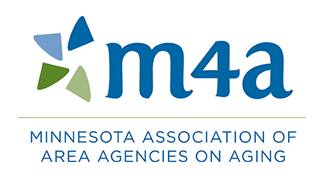Support Funding for Aging Services in Greater Minnesota
Local services funded by the Older Americans Act (OAA) through the Minnesota River Area Agency on Aging (MNRAAA) are at risk of losing funding. The OAA funds critical services that keep older adults healthy and independent, including meals, homemaker assistance, chores, caregiver support, transportation, and more. The Minnesota Board on Aging is tasked to create an equitable funding formula across the State. The outcome of the proposed formula, the Intrastate Funding Formula (IFF), would cut funds to greater Minnesota. The existing formula is heavily weighted on population. We need a formula that works for rural Minnesota.
Paramount to the successful leveraging of OAA funds is the requirement that these funds be the payer of last resort. States and regions must exhaust all other funding options first. The OAA services are often the only services available in our greater Minnesota communities. Rural Minnesota lacks robust philanthropic funding or a booming network of non-profits to step in and fill gaps when needed. This is why it is imperative that OAA funding is allocated equitably between rural Minnesotans and urban Minnesota. Equitable funding would assure the same opportunities for all Minnesotans.
According to the State Demographers Office and information from the 2020 Census, Minnesota’s rural aging population is growing, and older adults comprise 20% of the population in rural Minnesota counties. While this number is higher than in urban areas, rural areas are also experiencing a greater decline in the working-age population. We are also facing a critical stage of providing care for older adults in our area. Older adults in rural Minnesota are facing obstacles. These include closed hospitals or unreachable healthcare services, fewer transportation options, limited broadband access, a dispersed population, larger distances to food and healthcare access, and greater food insecurity for older adults. Since 2011, forty-two nursing homes have closed in Minnesota, and 73% occurred in greater Minnesota.
The proposed IFF would decrease several services in our region, including home-delivered meals, grocery delivery, trips to medical appointments, adult day programs, counseling and respite for caregivers, snow removal, lawn care, and legal assistance. Without your voice, greater Minnesota stands to lose critical support for community-based services.

You can help by submitting a public comment that supports funding for aging services in Greater Minnesota. The public comment period is open through May 3, 2023, and can be found here: https://mn.gov/board-on-aging/. For more information on the IFF and rural needs, visit www.GreaterMinnesotaAging.org.
Jason W. Swanson
Executive Director
MNRAAA
507-387-1256





